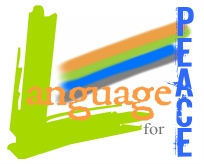In 2009, MCC sponsored the very first Northeast Asia Youth Peace Camp, a gathering where teens from China, South Korea and Japan spent a week together, hearing each other’s stories and breaking down walls of previously held prejudices and dislike. The pilot Peace Camp was held in Nanchong, in Sichuan province in China, and since then there has been annual camps, with each of the three countries taking turns hosting the campers. In 2010, the camp was held in again in Sichuan province, then in 2011 moved to Inje, South Korea. In 2012 it was in Hiroshima, Japan; 2013 in Nanjing, China; 2014 on Ganghwa Island, South Korea, and this year will be held in Tokyo, Japan.
As is found in many regions of the world where countries and people groups have histories of aggression towards each other, national sentiments of mistrust and bitterness toward historical (and even current) enemies can be pervasive, being passed on to young people as well. The Northeast Asia Peace Camp aims to create a safe space where teens from countries that have bitter tensions with each other can meet face to face. Through peace education activities, field trips, and by living together for a short time, they have the opportunity to turn fear and hate into friendship.
The camp also provides a tangible example where a common language can enable connection where otherwise it could be difficult. In MCC Peace Camp’s particular case, the language used most in common within the participating countries is English, but in different regions of the world, other common languages might be more appropriate. Peace Camp’s focus on building bridges also makes a space safe even for campers who struggle to speak the common language used. They are still included and made a part of the activities. Staff members from each country represented are there to provide language support when needed. In addition, former campers often serve as counselors during the week.
The peace education given during the week also tries to include lessons on issues of language and how it shapes the way we think about things. As an example, check out the attached powerpoint from a lesson used in last year’s Peace Camp that asked campers to consider the language used in memorials and how it perpetuates certain attitudes depending on who creates the memorials.
Would an event like a peace camp be something that would be beneficial for your students? What might it look like in your context?
How does the language we teach and learn to talk about particular subjects affect our perceptions and the perceptions of our students? What do we need to change?
See the powerpoint here: MCC NE Asia Peace Camp Memorial Presentation_2014
If you’re interested in finding out more about MCC Peace Camp, contact Yoonseo Park at yoonpak82@gmail.com

Discussion
No comments yet.